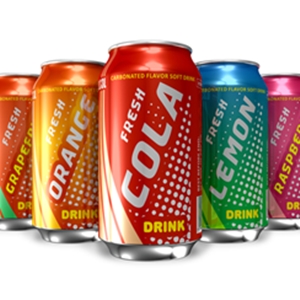
A few weeks ago, The New York Times published an article entitled 'Soda Makers Pitch Drinks as Healthy to Boost Sales'.
My first reaction was: 'They must be joking!' The article was about the fact that Coca-Cola and PepsiCo were planning to launch a range of new carbonated cold drinks (called 'sodas' in the US), which will be fortified with vitamins and minerals. These cold drinks will be called 'Diet Coke Plus' and 'Tava' respectively. At first glance, it's a good idea. But anyone involved in nutrition will have reservations, and so should you.
The drinks concerned will be marketed as 'sparkling beverages' and not 'soft drinks', because market research has revealed that the American public is drinking less Coca-Cola and Pepsi ,and that sales of these traditional cold drinks are falling. According to the New York Times article, Americans are turning away from traditional sweetened drinks in favour of waters and juices, in an attempt to prevent obesity.
Background information
A number of years ago, a team of researchers reported that American children and teenagers were gaining weight at an alarmingly fast rate and that for each bottle of 'soda pop' (sweetened cold drink) the youngsters ingested on a daily basis, their risk of becoming obese increased exponentially.
Consequently, dieticians and nutritionists started cautioning parents and the general population to cut back on sweetened cold drinks. The caution was emphasised by the proposal that sugar in liquid form is potentially more 'fattening' than sugar in solid form (e.g. table sugar used on cereals or in tea and coffee).
At last it seems that the American public is reacting to this message, and starting in 2005, the sales of cold drinks dropped, apparently for the first time in history.
In view of the vast contribution to the world economy made by the cold drink industry ($68 billion in the US alone), soda giants like Coca-Cola and Pepsi weren't going to take this lying down.
'Lite' drinks
So-called 'lite' cold drinks, sweetened with artificial sweeteners - like Tab, Coca-Cola Lite and Diet Pepsi - were the first and obvious answer to the obesity debate. But recent sales figures show that even these are losing ground to sports drinks, still and sparkling water, fruit juices and green tea drinks .
From a weight-management point of view, energy-free cold drinks, still and sparkling bottled spring water and artificially sweetened bottled water, and soda water, are the best choices.
Fruit juices on average contain about 200kJ and nearly 12g of fruit sugar (fructose, glucose and sucrose) per 100ml – even if no table or cane sugar has been added. Sports drinks contain between 120kJ and 7g of carbohydrates per 100ml (Energade) to 296kJ and 17,1g of carbohydrate per 100ml (Lucozade). Therefore, neither fruit juices, nor energy drinks are ideal for anyone who needs to lose weight and reduce their energy intake. For example, drinking a 250ml glass of fruit juice will add 500kJ to your daily energy intake or nearly 8% to the daily energy requirement of an adult woman.
Slimmers should, therefore, either dilute fruit juices with water or drink them in small quantities. And for every 500ml of a sports drink that you consume, you add 600kJ to your energy intake. Sports or energy drinks should thus only be used by dieters who're doing at least 60 minutes of intensive aerobic exercise on a daily basis.
Here's the problem
These new-generation cold drinks will become available soon. Diet Cola Plus will reportedly contain added niacin, vitamins B6 and B12, and magnesium and zinc, while Tava will include vitamins B3 (niacin), B6 and E, and chromium.
In view of recent findings that excessive intakes of certain vitamins, and possibly also minerals, may be harmful to health. I am personally not in favour of such fortified cold drinks.
Health24 readers often confess that they drink litres of cold drinks a day, and I am worried that litres of these new fortified products may well lead to an overdose of some of these nutrients.
Generally speaking, the B vitamins should not pose a problem, as the body is capable of excreting them. The minerals, however, are another story. Excessive intakes of magnesium can lead to kidney stones; too much zinc can reduce copper absorption and cause gastrointestinal irritation, vomiting and damage to the nervous system; while chromium guidelines specify that no one should ingest more than 200 microgram per day.
We will have to see at what levels these nutrients will be added to cold drinks ,and what impact they will have on general health, but I still think that fortifying cold drinks with vitamins and minerals is a contradiction in terms.
Reference:
(Soda Makers Pitch Drinks As Healthy to Boost Sales. The New York Times. Sunday, 12 March 2007.)




 Publications
Publications
 Partners
Partners














